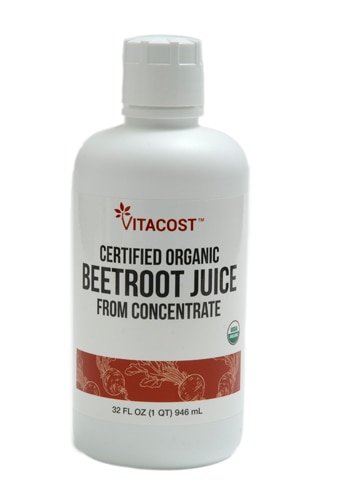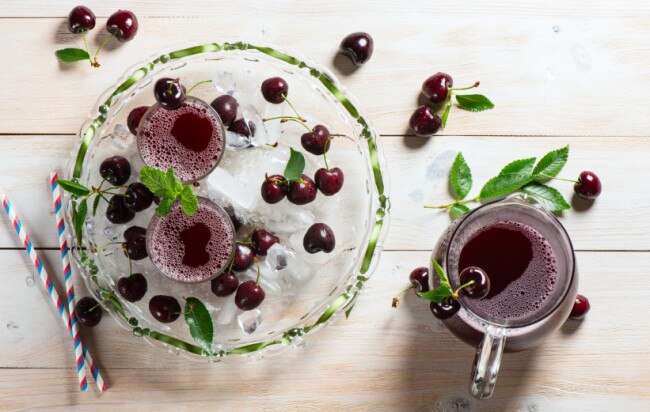These days, the juice section of the grocery store is filled with exotic blends of juices you have not only never tried but made from fruits you have never seen. While many overly sweet juices are nothing more than a blood sugar spike waiting to happen, several exotic juices merit exploration—and perhaps even deserve to become a part of your repertoire. Here are four juices you can feel good about sipping.
Acai
The acai berry, an inch-long, reddish-purple fruit, comes from the acai palm tree, native to Central and South America. A fair amount of research shows that acai fruit pulp is richer in antioxidants than cranberries, raspberries, blackberries, strawberries or blueberries. While acai has become a ubiquitous add-on to many new packaged foods and drinks, the research on acai berries is still limited. Beware of exorbitant claims about the health benefits of acai—especially those regarding weight loss.
Aloe
Packed with antioxidants, including B, C and vitamin E, as well as folic acid, which support the body's immune system, aloe juice, perhaps because of its bitter taste, remains something of an unsung hero of the juice aisle. While it’s long been a well-known herbal solution for the skin, aloe may offer benefits for internal wellness when taken as a nutritional drink.* Its taste can be strong, perhaps even off-putting, so go slowly (start with an ounce or two) and try dissolving in water or mixing with lemon.
Tart cherry
Tart cherry juice is increasingly being hailed as a natural solution for pain, swelling and sleeplessness. Renown for its inflammatory-supporting superpowers, in one recent study published in Osteoarthritis and Cartilage cherry juice relieved joint pain in 58 individuals with mild to moderate knee osteoarthritis.*
Beet
Although it’s not the one of newer kids on the juice block, beets, rich in natural chemicals called nitrates, are being studied for their potentially beneficial effects on many different areas of health. You can juice the beets on your own, or spend about $10 for a prepared bottle at the supermarket or online.
*These statements have not been evaluated by the FDA. These products are not intended to diagnose, treat, cure or prevent any disease.




